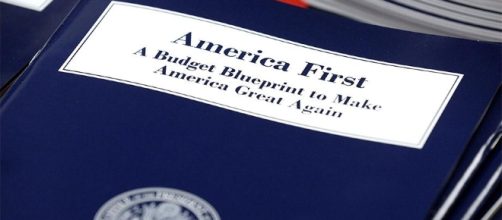Despite historical failures of various Republican Tax Cuts, the Trump administration has put forward a budget proposal based on the assumption that #tax cuts invariably produce strong economic growth. When Ronald Reagan introduced cuts in 1981, he was forced to reverse them in the 1982 and 1984 budgets. The George Bush tax cuts in 2001 and 2003 delivered a short-term boost but failed to produce long-term sustainable growth.
Economists from both sides have reacted with a degree of disbelief to the proposed figures, questioning the assumed growth rate and calling it outright over-optimistic.
The assumed growth increase of $2.1 billion over the coming decade does not factor in the effects of the proposed #tax cuts. To economists, this simply does not make sense, in fact, some of them have termed it "double-counting."
A senior vice president for bipartisan Committee for a Responsible Federal Budget, Mark Goldwein is quoted to have said, "you can't count the same money twice", while Lawrence Summers, who served in both the Clinton and Obama administration called it an "egregious accounting error."
When questioned on this issue by reporters, Mick Mulvaney replied, "you have to make assumptions about the budget."
Tax cuts for the wealthiest do not boost the economy
What the proposed #tax cuts will eventually look like remains unclear, as the administration has failed to deliver a clear outline thereof in the budget proposal.
However, experts believe that the cuts will be predominantly reserved for those on high incomes.The basic premise by which tax cuts put more money into people's pockets and encourage spending does not apply to the wealthiest, simply because they tend to save extra cash rather than spend it and fuel a more buoyant economy.
During a series of exchanges with the press, Mick Mulvaney reiterated that the budget proposal was in line with Donald Trump's election promises and expressed sympathy with the wealthier members of society.
However, according to Nariman Behravesh, chief economist at IHS Markit, #tax cuts are far more effective in encouraging spending if directed at lower income families: "If you tilt the #tax cuts toward lower-income households, they will spend more of it", and continued by stating that this assumption was commonly accepted in economic circles.
Budget cuts hurt the poor and may stifle growth
Other economists predict that the severe budgetary cuts for programs that assist those who are less well off could actually discourage spending and stifle economic growth.
The budget proposes cuts in a plethora of social, art, education, and environmental projects, and cuts in social spending can potentially pose real difficulties for people on low incomes.


